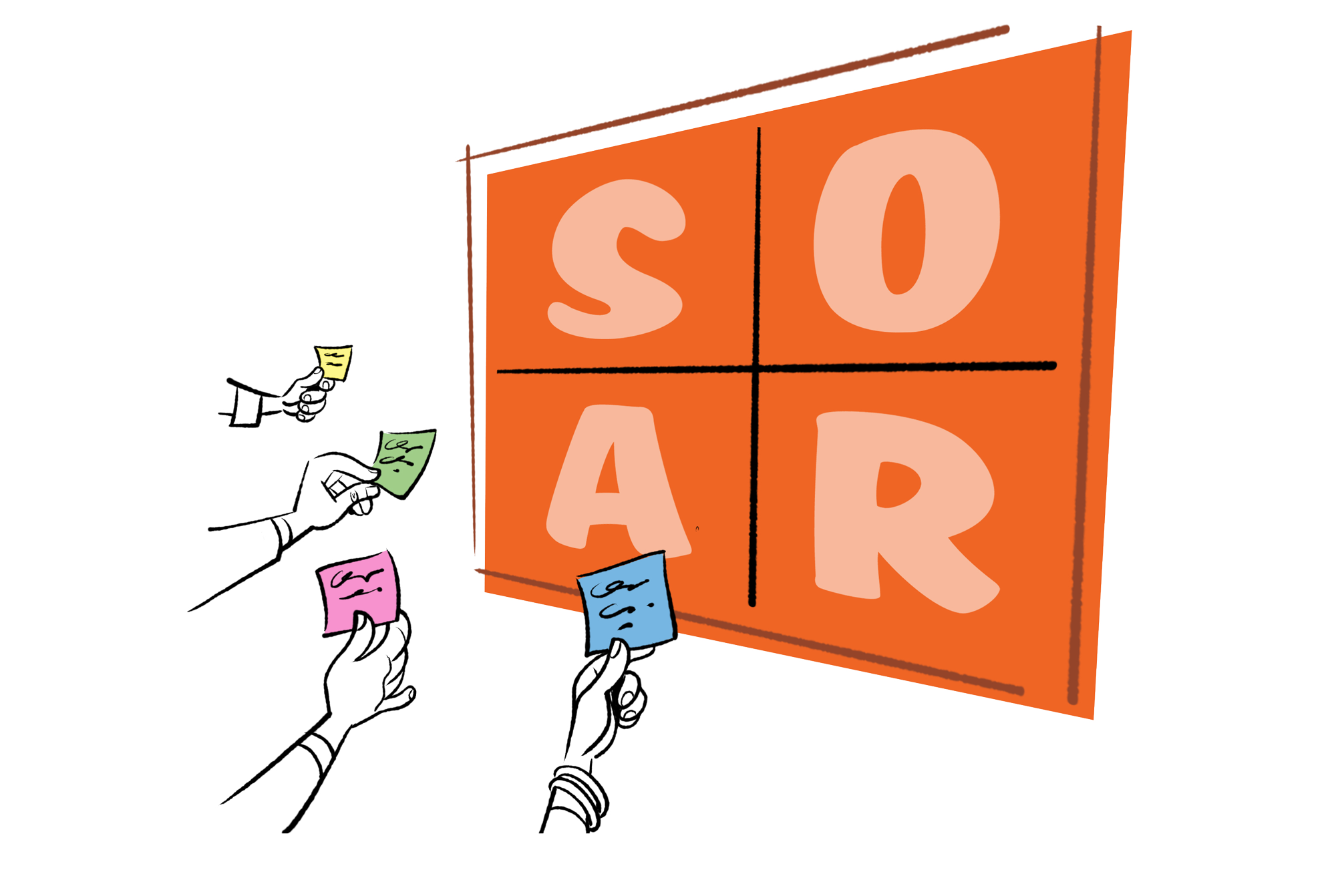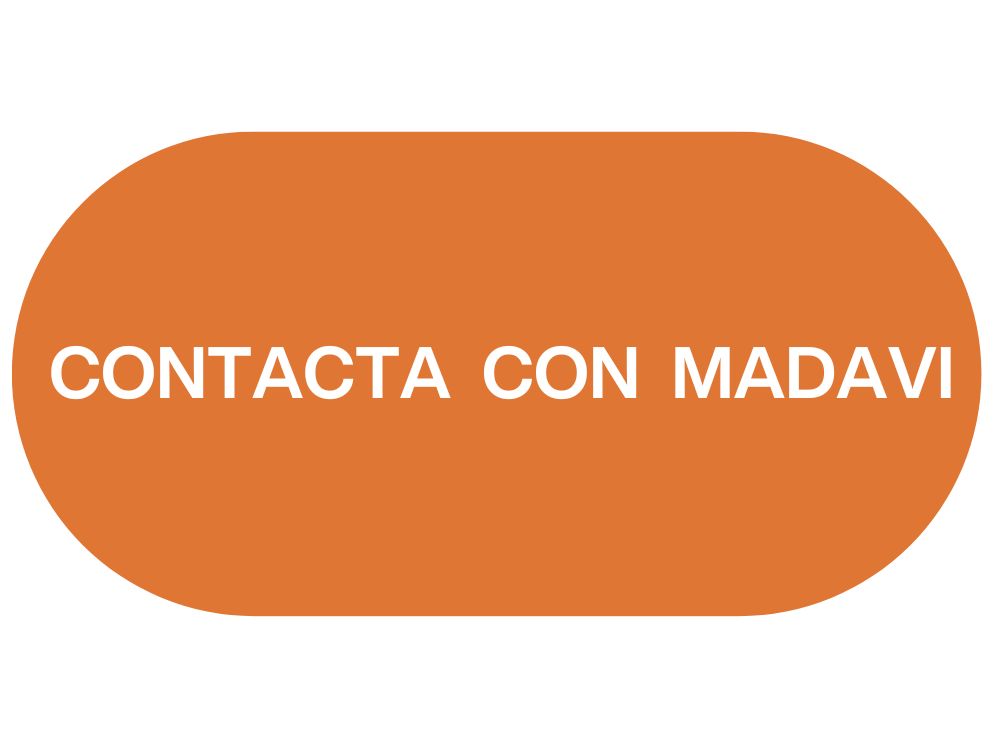In an increasingly competitive business world, companies need tools and methodologies that allow them to reach their objectives effectively and efficiently. In different articles, we have talked about some of these methodologies, specifically those used by Madavi, due to their magnificent results: Appreciative Inquiry, Positive Deviation, Expansive Circle, Conversations Worth Having, SOAR, Focus on Solution and Thinking Partner.
Today, we are going to focus on one of these: SOAR, a powerful tool that also focuses on identifying and enhancing a company’s strengths, instead of focusing solely on solving problems and weaknesses.
What is SOAR and how can it transform a company?
SOAR is a framework for strategy formulation and planning that enables an organization to envision its preferred future. It makes use of appreciative inquiry, applying it to construct strategic thinking and a dialogue process.
The word SOAR is an acronym of the words Strengths, Opportunities, Aspirations and Results. This methodology is based on the idea that a company can achieve greater success by focusing on its strengths and opportunities, rather than trying to correct its weaknesses. That is, instead of approaching problems from a negative perspective, SOAR seeks solutions by recognizing and enhancing a company’s strengths.
Weaknesses and threats are not ignored, but rather, are reframed and focused on more appropriately in an opportunities context. By applying SOAR methodology, companies transform themselves by improving their organizational culture, increasing employee satisfaction and motivation, improving their public image and increasing their profitability. In addition, SOAR can be used in different areas of the company, such as marketing, human resources management and business strategy.
The principles of SOAR methodology
The methodology of SOAR is based on four fundamental principles that are the key to its success. The first principle is focusing on strengths, which means that those skills and resources that make the company unique and successful must be identified and enhanced. The second is exploring opportunities, which means looking for new forms of growth and development for the company. Thirdly, there is the definition of aspirations, which refers to establishing clear and ambitious goals and objectives for the company. Finally, there is the principle of results, which consists of evaluating the company’s progress and achievements through specific plans and indicators.
These principles work together to create an organizational culture focused on success and growth, in which employees feel motivated and committed to the company.
Benefits of applying SOAR in the company
As we are seeing, the application of SOAR methodology brings a series of significant benefits for companies. In the first place, by focusing on the company’s strengths and opportunities, existing processes and strategies can be improved to achieve greater success. A second point is that SOAR can help create a more positive and motivational culture for the organization, which can increase employee satisfaction and retention. Thirdly, by establishing clear goals and objectives, communication and coordination between different departments of the company can be improved. Finally, the application of SOAR can improve the company’s public image by highlighting its strengths and achievements. This can help attract new customers and business partners, as well as improving the company’s reputation in the market.
If you want to work with this methodology in your company, do not hesitate to consult our team of facilitators, without any obligation!
When did this methodology arise and who created it?
The SOAR methodology emerged in the 1990s, as a response to SWOT methodology (Strengths, Weaknesses, Opportunities and Threats), which focused on identifying a company’s problems and weaknesses. SOAR was created by Jacqueline Stavros and Gina Hinrichs, two management professionals who were looking for an innovative way to address business challenges.
Stavros and Hinrichs believed that the SWOT methodology had a focus that was too negative and limiting, as it focused primarily on correcting problems and weaknesses. By contrast, SOAR focuses on identifying and leveraging a company’s strengths and opportunities to achieve greater success. Since then, the SOAR methodology has been used by companies around the world to improve their performance and achieve their goals.
Success stories using SOAR in the business world
SOAR methodology has been used successfully by numerous companies around the world. An outstanding example is the telecoms company AT&T, which used SOAR to improve its organizational culture and increase employee satisfaction. Another example is the food company Kellogg’s, which used SOAR to improve its marketing strategy and increase consumer loyalty. By focusing on its brand strengths and exploring new growth opportunities, Kellogg’s was able to develop more effective advertising campaigns and improve its relationship with consumers. These are just a few examples of how the SOAR methodology can help companies achieve greater success.
How can SOAR help me at a personal level?
Although SOAR methodology originated in the business world, it can also be applied in the personal sphere to achieve greater success and well-being. For example, by identifying your personal strengths, you can find the best way to use them to achieve personal goals. As well, by exploring new opportunities for personal growth and development, you can discover new interests and skills that can be used to achieve more ambitious goals.
SOAR can also be used to improve relationships with others. By identifying strengths and opportunities in interpersonal relationships, you can improve communications and establish shared goals.
In conclusion, if you’re looking for an innovative way to improve your business or personal life, you should consider applying SOAR methodology. By focusing on strengths and opportunities, you can discover new ways to grow and develop that will take you to the next level of success.


